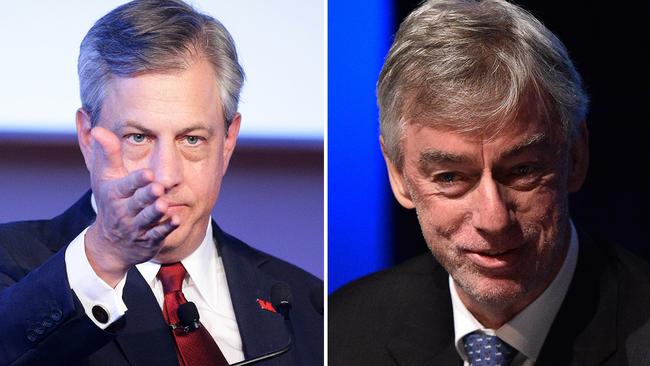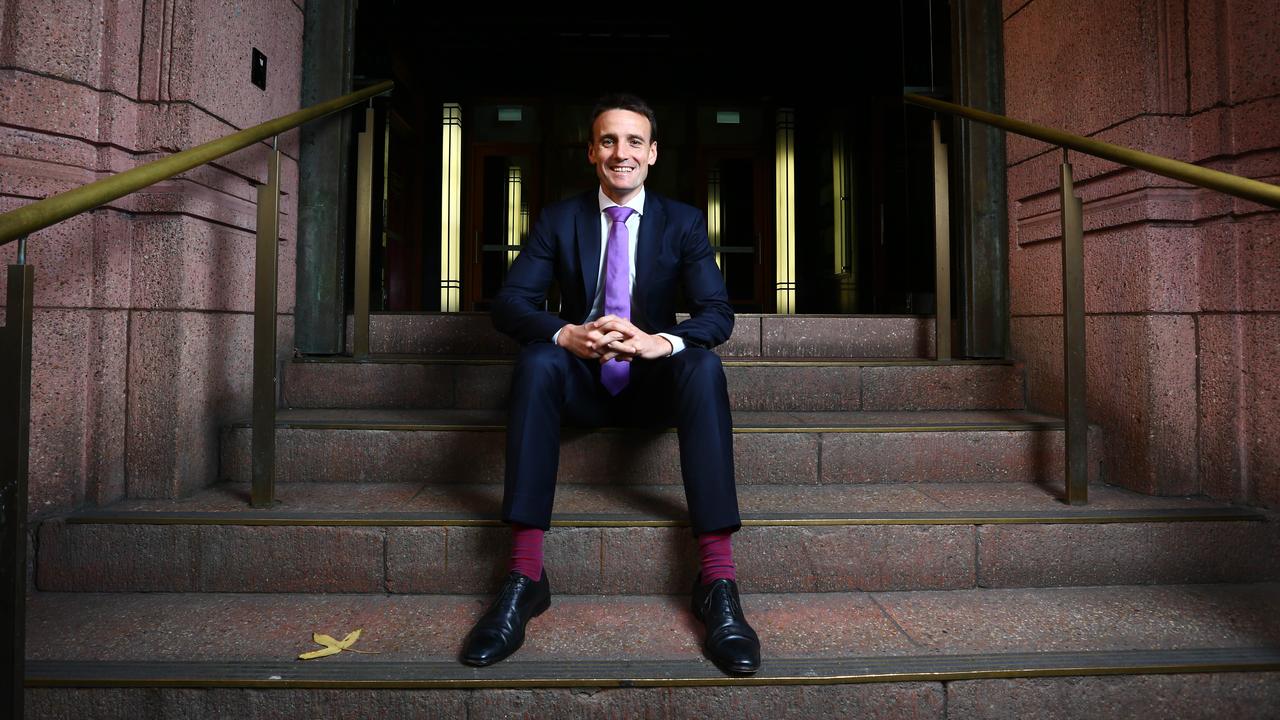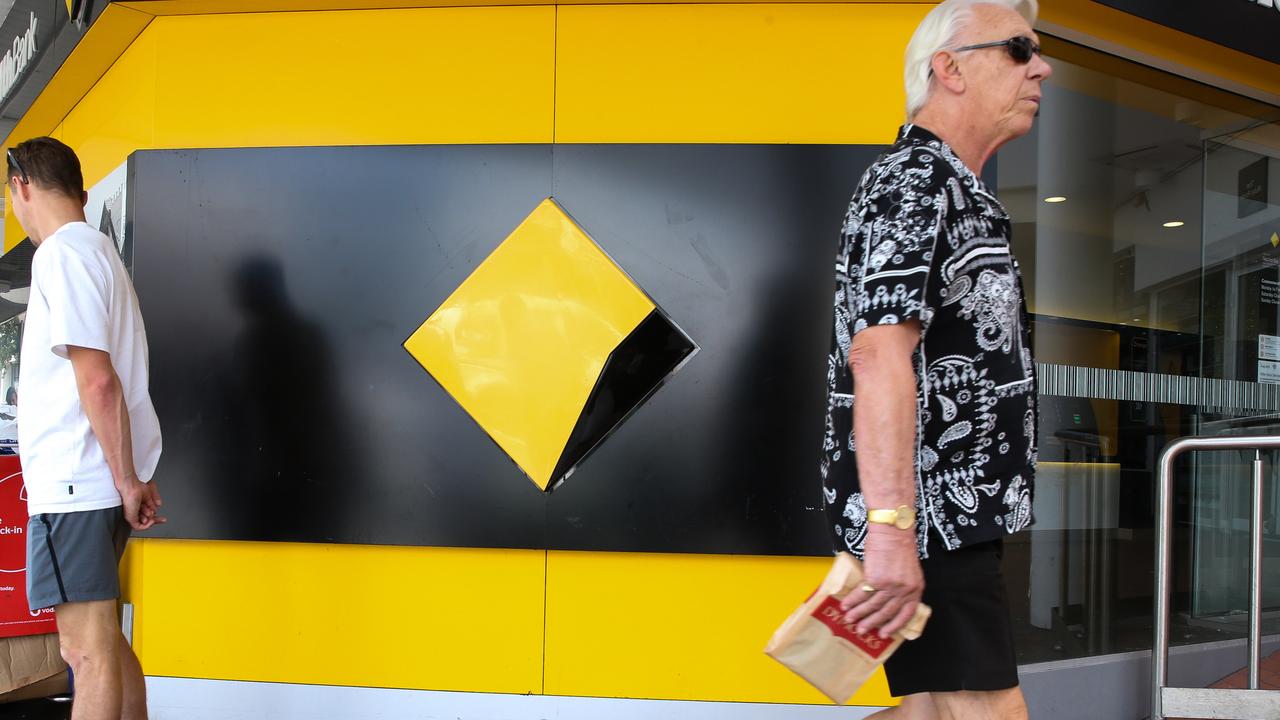
At the same time the CEO Brian Hartzer spoke to his executives, saying the whole matter was a storm in a teacup.
Maxsted followed the advice of his shareholders, not his CEO.
Every CEO in the land can learn from what I believe was a basic flaw in the way Hartzer ran Westpac. He delegated too much and was not always across the detail and that particularly applied to the technology.
Technology and data are at the core of most companies and CEOs must understand the detail. The chairman of the board must ensure that the CEO understands that detail. But there are other fascinating aspects to this affair and its impact on Westoac staff and Commonwealth Bank chief Matt Comyn.
READ MORE: Leaked quotes, then the end for Hartzer | Clean-out lifts Westpac shares | Hartzer gets golden handshake but forgoes bonuses
On Monday I walked into a Westpac CBD branch in Melbourne. You could feel the tension, but the service and customer assistance were brilliant and arguably “unbank-like”. Later in the day the message from CEO Brian Hartzer to his executives in Westpac’s Kent Street headquarters in Sydney that Westpac was “no Enron” filtered into the ranks.
Most of the younger staff who heard the message via the grapevine would have had to Google Enron to discover what their CEO was talking about.
According to Investopedia, Enron was a US company “that reached dramatic heights only to face a dizzying fall. The failed company’s collapse affected thousands of employees”.
But I suspect of greater staff concern was the abandonment of the Westpac’s Christmas parties. That’s what companies do when there are financial problems.
Actually, Enron was rotten at the financial core.
Enron or AMP?
With former KPMG partner Lindsay Maxsted as chairman, Westpac staff can be assured that they do not work for an “Enron”. But of much greater danger is that they may work for an “AMP”.
The AMP scandals saw massive amounts of money and slabs of business walk out the door.
Westpac staff know that while Hartzer was delivering his message from Kent Street, down in Sussex Street at their arch rival Commonwealth Bank, Matt Comyn was offering a higher rate of interest on one-year term deposits than Westpac and most of the other banks.
Comyn was probably not targeting Westpac but down at staff level it sure felt like it.

Few staff the Westpac branches today were around in the 1990s when Westpac hit severe turbulence and Kerry Packer almost took control. At that time, Commonwealth Bank was owned by the government and was not able to take advantage. ANZ had its own turbulence and it was NAB that creamed the Westpac business.
This time Westpac is not in financial bother but, like the AMP in the wake of the royal commission, it has a nasty image problem. Both the Prime Minister and Treasurer have been critical of the company. But it was home affairs minister Peter Dutton who captured the public mood, saying “the Westpac banking bosses, through their negligence have given a free pass to pedophiles, and there is a price to pay for that and that price will be paid”.
In other words Westpac, will face a very heavy non-tax deductible fine and will lose large slabs of market share.
On the other side of the political spectrum the Victorian government – Westpac’s second largest customer - was considering not inviting Westpac to tender next year when its banking contract is set for renewal.
The share market could sniff the dangers and Westpac shares fell back as Hartzer was delivering his message. In contrast, CBA shares were rising as the market sensed the opportunity for Comyn. Maxsted’s decision to act will have been driven partly by the message of the big shareholders and partly by real dangers of market share loss confronting the company.
Blind to the storm
But the message from executive briefing was that Hartzer did not realise the depth of the crisis. It is not a storm in a tea cup.
As I pointed out yesterday, there is a clear difference between the Westpac and Austrac accounts of what happened. Westpac has made a clear case that it has been unfairly treated and the board did not know what was taking place. But all of that is suddenly irrelevant. The word “pedophile” carries enormous emotion and it swamps all the detail.
Australians saw the AMP look incredibly bad before the royal commission. The customers didn’t want to hear the detail because they had made up their mind to withdraw their superannuation.
This time the public message is that Westpac is “financing pedophiles”. Leave aside the facts - that’s what many Australians now believe - and Westpac faces grave danger that its customers will respond in the same way as AMP’s did. In protecting itself against market share loss Westpac must hope that its rival banks are seen as just as bad.
After the royal commission crisis, NAB was able to maintain its market share. But NAB had an untarnished CEO on the board in Philip Chronican and he steered the bank through the crisis. For Westpac, the link to pedophiles carries a greater danger. Westpac shareholders have to hope the internal temporary appointments led by Peter King can do a similar job to Chronican. Perhaps King should consider restoring the Christmas parties and using them as a way to lift morale.




The removal of both the Westpac CEO and its chairman is a strange tale of two conversations. Chairman Lindsay Maxsted spoke to the industry superannuation funds and other big Westpac shareholders and was told in no uncertain terms what had to happen.